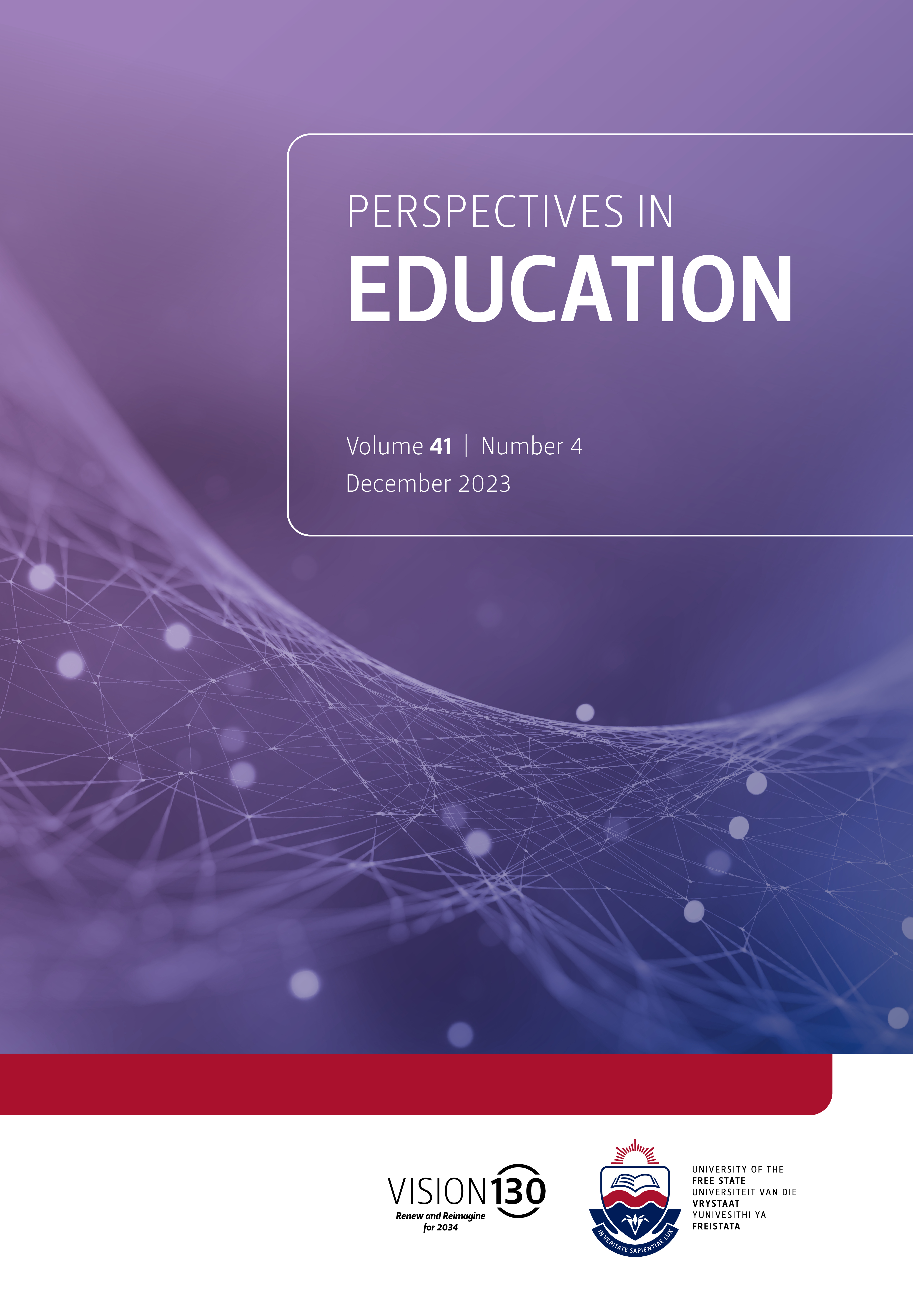Strategies to support progressed South African Grade 12 Mathematics learners
DOI:
https://doi.org/10.38140/pie.v41i4.7544Keywords:
Connectivism, Information Communication Technologies, Mathematics, progressed learners, traditional support strategiesAbstract
The introduction of progression policy, which prohibits the repetition of a grade to more than once within each of the four phases of Basic Education, was enforced in South Africa in the Further Education and Training phase in 2013, but appropriate strategies which could be applied to support progressed learners are not addressed.
This research was qualitative by nature and approached according to the interpretative paradigm. It was a comparative case study, which investigated strategies to support Grade 12 progressed Mathematics learners using Information Communication Technologies in comparison with other strategies that do not apply ICT instructional technologies. Data collection strategies were semi-structured interviews, questionnaires and support policies. The study population was sixteen FET Mathematics educators from five schools in Ekurhuleni North district.
The findings indicated that connectivism, when incorporated into teaching and learning, becomes an effective support tool for progressed learners. ICTs within networks makes teaching and learning more learner centred, improves participation, learner attainment and pass rate. Learners are able to learn at their own pace, in their most convenient set-up and they manage what they learn, how they learn, with whom they learn and what information they require. The study found that there are greater benefits of using ICT instructional technologies in a connectivist classroom to support progressed learners, but that traditional support strategies cannot be ruled out due to the socio-economic challenges schools under research experienced. The findings further indicated that there is a dire need of a comprehensive support policies, strategies and guidelines to support progressed and low-ability learners in Mathematics both digitally and non-digitally.
Downloads
##submission.downloads##
Published
How to Cite
Issue
Section
License
Copyright (c) 2023 Lineo Kolobe, Maryke Anneke Mihai

This work is licensed under a Creative Commons Attribution 4.0 International License.





